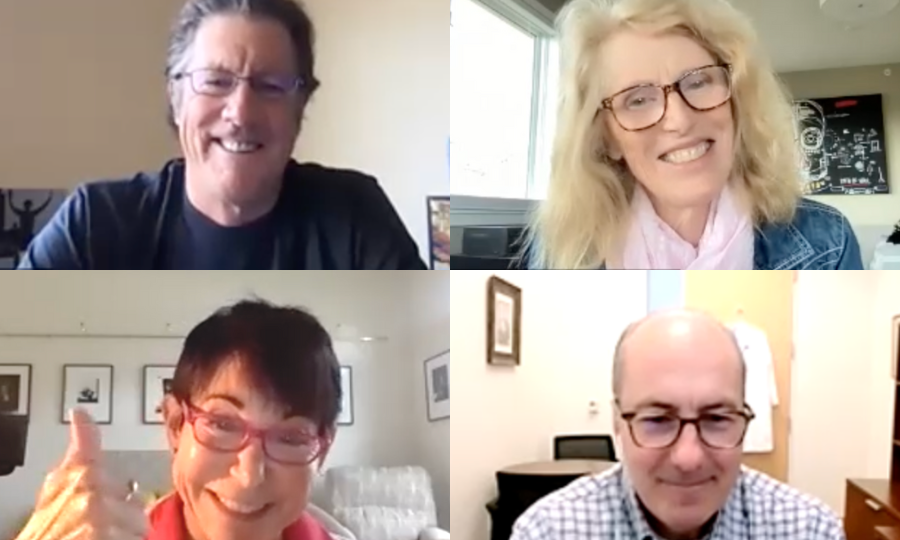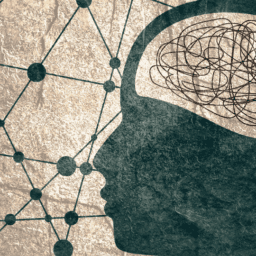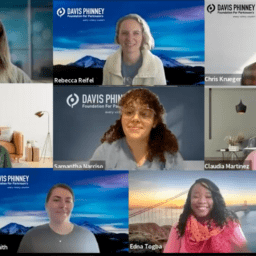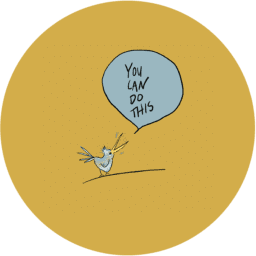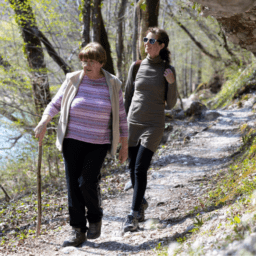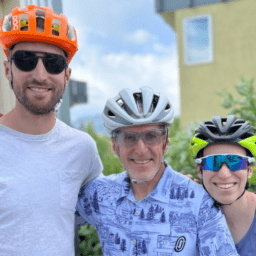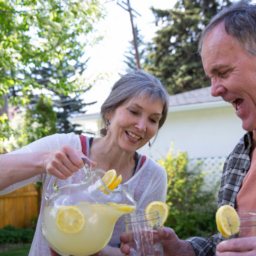Every month, we host a Care Partner Meetup that brings together our panelists Connie Carpenter-Phinney, Pat Donahoo, and Gail Gitin with Parkinson’s care partners to discuss what it’s like to be a care partner. While we don’t publish a recording of these monthly meetups because of the sensitive nature of the conversation, we do want to share some key takeaways so that even if you can’t join us live, you can still benefit from the expertise of our panelists and community members.
notes from the july care partner meetup
During this session, we continued our conversation on guilt and responsibility when it comes to caring for someone with Parkinson’s. Dr. Mark Mapstone, a professor of Neurology who specializes in cognitive disorders like Parkinson’s and Alzheimer’s at the University of California Irvine, joined us to offer his perspective.
Acknowledge your circumstances
- One of the first things we talked about was how the Fourth of July is extremely overstimulating. Give yourself some time after events like these to recuperate and get back on track. If it takes a bit to get back to normal, that is completely fine.
- Sometimes we need to take time for ourselves. Do not feel bad about this. In order to be the best version of yourself, you need to focus on self-care and relaxation as well. Take time for yourself, even if you feel guilty. Parkinson’s takes a lot from us, physically, emotionally, and personally. Still do things that give you joy. Still go on vacations without your partner. If there’s an emergency, of course, you’ll be there, and your partner will tell you they need you. Try not to sweat the small stuff and have trust in your partner and your instincts.
- This does mean that you may have to leave the person you are taking care of for a bit. If we have people “take over” our caretaking responsibilities for a short time, make sure they know both you and your partner’s expectations and that they are including you in major health and emotional decisions.
Embarrassment
- As partners, we need to have grace and remember that our partners may feel some embarrassment because of the amount of help they need. There is this perspective that if you can walk and function normally, there’s no reason to worry your care partner when they’re already worrying about more than enough.
- Sometimes our partners keep injuries, falls, and symptoms from us because they don’t want us to worry about them. However, this can build up anger and resentment in both us and our partners. What we need to focus on is trust and decision-making: who makes the decisions in these situations? That question can only be answered by you and your partner, there is no “one size fits all” solution.
- If a partner doesn’t tell you about a problem, ask yourself: Where is this feeling coming from? Why would my partner keep something from me? Do I need to feel guilty about this or am I just frustrated that something happened while I wasn’t watching?
Frustration
- It’s okay to feel resentment and anger. Pull those feelings out and address them. Spend some time self-caring. You can’t be the care partner you want to be if you’re angry, but you also cannot be yourself if you don’t process these feelings.
- By the time many people get Parkinson’s, they are fully capable of decision-making and get frustrated that those decisions are being questioned, by themselves and their partners. Give your partner the ability to make decisions as much as possible in order to maintain their executive function skills and retain some freedom. One way to do this is to let your partner talk to their doctor without you, so they can give honest answers without having to sugarcoat their symptoms.
- The person you knew before being diagnosed is not the same person now, and you need to give your person with Parkinson’s that validation. This also means we have to validate ourselves when we forget that and get frustrated that our partner can’t do the same tasks they once were capable of.
Additional Tips
- When you get sick, make sure that you always call the doctor immediately for both your own health and that of your partner.
- Every other visit with your neurologist, ask for a cognitive screening. This can have huge ramifications on your quality of life, and this will help you and your partner with decision-making.
Additional Resources
VIDEOS
ARTICLES
- June 2022 Care Partner Meetup Show Notes
- Comparative Suffering is Dangerous
- Care Partner Resources Hub
- How Long Can I Keep Driving if I Have Parkinson’s
- Parkinson Voice Project
- Parkinson’s Care Partner Rulebook
- Lotsa Helping Hands
PODCASTS
Join us in August for our next care partner meetup
Our next session is happening on Tuesday, August 2, at 12 pm Mountain Daylight Time
(11 am PDT, 1 pm CDT, 2 pm EDT).


